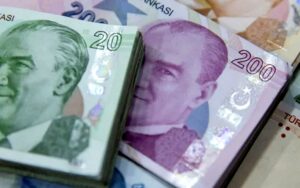The Independent: European peoples pushed their governments to change their stance on Israel

Europe has stood with the State of Israel since its inception and has been its closest ally and economic partner, evident in the continent’s unconditional support for Israel’s military policies in Palestine.
However, this support has now evaporated as European publics’ anger over the humanitarian catastrophe in Gaza has mounted, according to The Independent newspaper.
The British newspaper report confirmed that growing public anger prompted the continent’s rulers to demand that Israeli Prime Minister Benjamin Netanyahu halt the war and allow aid into the country after months of silence.
The report’s author, journalist Sam McNeil, demonstrated the European shift by pointing out that Italy joined Spain in protecting the “Resilience Flotilla” en route to break the siege of Gaza, despite their subsequent withdrawal.
Data from the Global Conflict Monitoring Project’s report shed light on the impact of popular anger on Israeli-European relations.
The report confirmed that the number of pro-Palestinian demonstrations in Europe jumped from 780 in five months to more than 2,066 recently.
The project confirmed that there are at least 15 demonstrations daily in support of Palestine.
Under such popular pressure, even Netanyahu—who is wanted by the International Criminal Court for war crimes in Gaza—admitted to the UN General Assembly that support for Israel has evaporated rapidly in recent months, according to the report.
The Independent noted that Italian Prime Minister Giorgia Meloni, a well-known supporter of Netanyahu, announced her support for sanctions against Israel following widespread protests last week.
She told the United Nations, “Israel has violated humanitarian norms and committed a massacre against civilians”.
Unlike Italy, Germany remains burdened by the legacy of its past transgressions against the Jews.
German Chancellor Friedrich Merz has expressed concern about the situation in Gaza and reduced arms exports to Israel, but has rejected economic sanctions, according to the report.
For her part, the report continues, European Commission President Ursula von der Leyen acknowledged that Europe “needs to do more” to end the suffering in Gaza, proposing additional tariffs on Israeli goods and punishing settlers and officials.
According to Lisa Mussol, head of EU affairs at the International Crisis Group, von der Leyen’s suspension came as a result of widespread criticism of her policies and pressure from EU staff, with a protest petition signed by more than 2,000 current staff and 390 ambassadors and former officials, according to The Independent.
According to the report, this shift is shocking given the close historical ties between the European Union and Israel, which emerged after the end of World War II.
Many Israeli Jews trace their roots to European Jewish communities that fled Europe.
“Israel is part of Europe, and anyone who doesn’t recognize that doesn’t understand the country at all,” Sharon Pardo, a professor at Israel’s Ben-Gurion University, told The Independent.
David Ben-Gurion, Israel’s first prime minister, laid the foundations for economic, political, and cultural ties with Europe, Pardo explains, and the continent was Israel’s most prominent trading partner, “the main market for Israeli agriculture, and the primary source of arms”.
Pardo believes that Netanyahu has undermined this relationship and made Israel “an anti-EU state that does its utmost to harm and sabotage the European integration project,” referring to Netanyahu’s cooperation with the European populist right.
This partly explains, in the opinion of the university professor, an expert on Israeli-European relations, the changing position of European leaders toward Israel.







